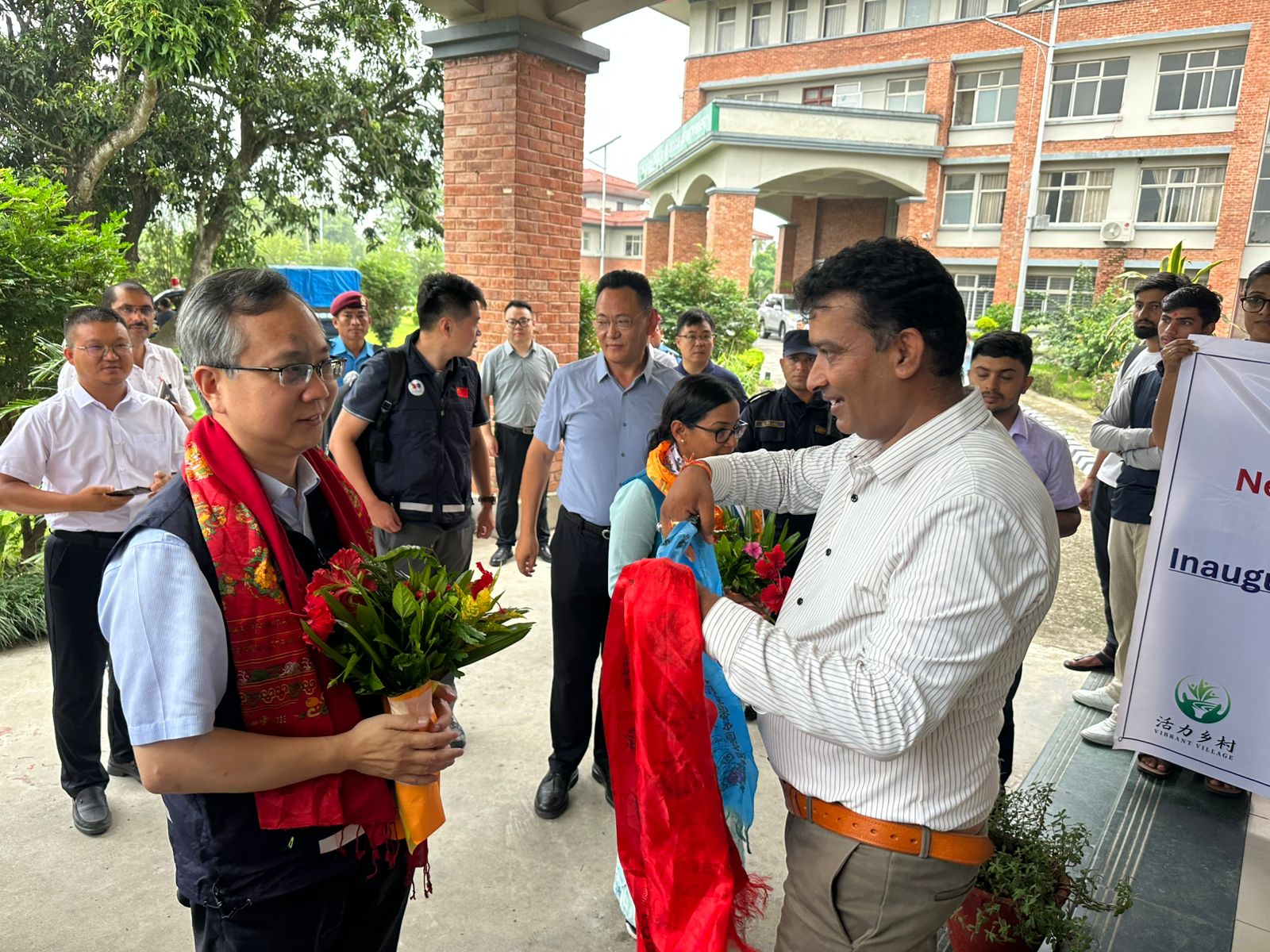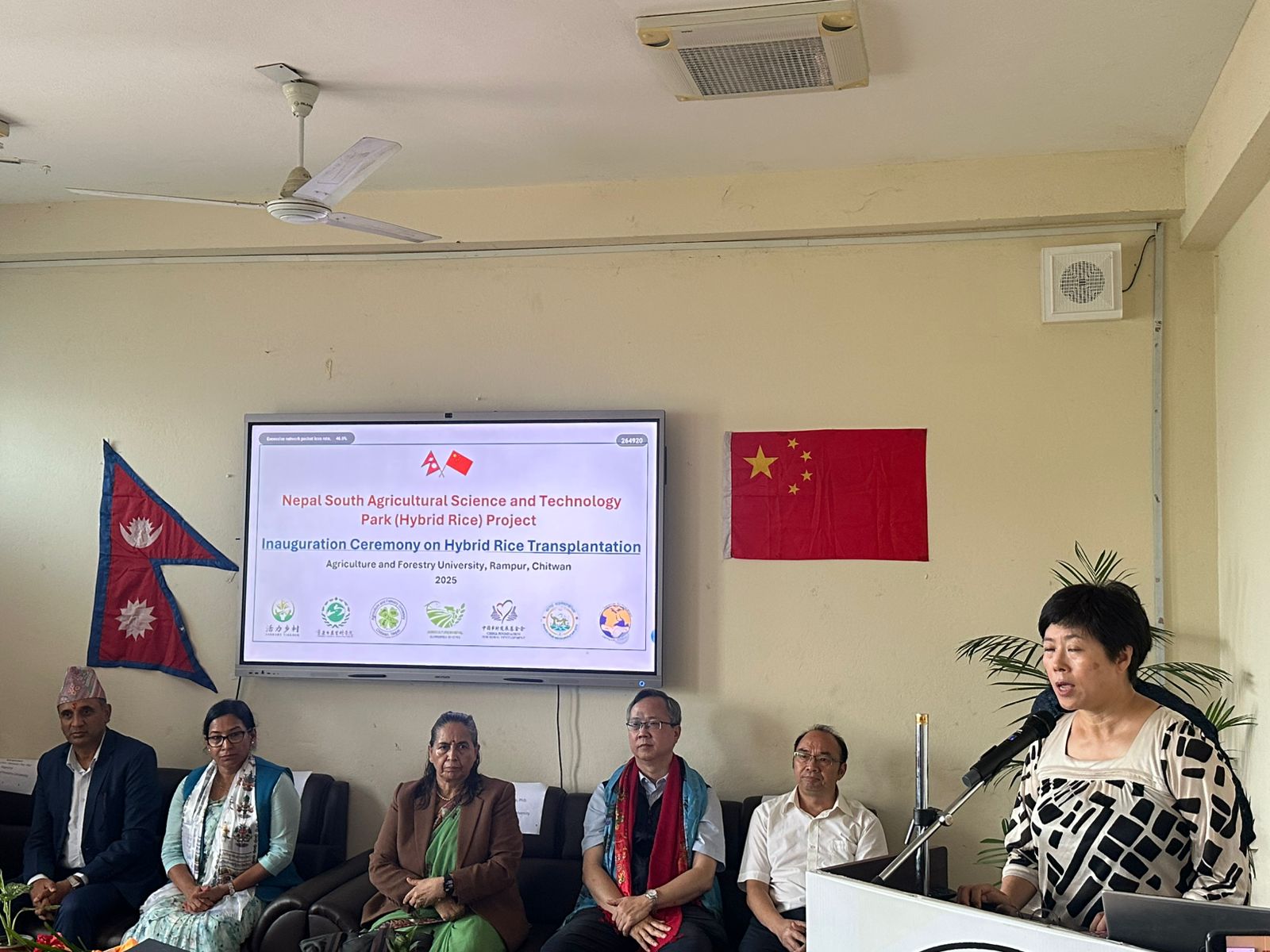National
First trial seedling transplantion held at China–Nepal Southern Agricultural Science and Technology Park
The ceremony marks a key milestone in agricultural cooperation between Nepal and China with 37 high-yield hybrid rice varieties transplanted as part of the demonstration project.
Post Report
The China Foundation for Rural Development (CFRD) and Nepal’s Agriculture and Forestry University (AFU) held the first trial seedling transplanting ceremony on Monday at the China–Nepal Southern Agricultural Science and Technology Park Hybrid Rice Demonstration Zone.
The CFRD said in a statement that this ceremony is a major milestone in the ongoing agricultural cooperation between Nepal and China, coinciding with the 70th anniversary of diplomatic relations between the two countries.
37 high-yield hybrid rice varieties were transplanted during the event as part of the demonstration project.

The event was attended by Chinese Ambassador to Nepal Chen Song, Bharatpur Metropolitan City Mayor Renu Dahal, AFU Vice Chancellor Sharada Thapaliya, Secretary of the Ministry of Agriculture and Livestock Development Deepak Kumar Kharal, CFRD Nepal Office Country Director Zou Zhiqiang, Chinese and Nepali agricultural experts and researchers, senior officials from AFU, the chief district officer of Chitwan, and nearly 100 local villagers.
Chinese Ambassador to Nepal Chen Song said that promoting China’s hybrid rice technology is a vital part of global agricultural technology cooperation and one of China’s contributions to global food security governance. He said that through joint research and technology exchange, China aims to help developing countries like Nepal achieve food self-sufficiency and improve agricultural productivity.
Agricultural experts from Chongqing, China, are collaborating with AFU and Nepali research institutions to select hybrid rice varieties best suited to Nepal’s climate, soil, and farming practices.

Thapaliya highlighted that this project is more than seed testing; it is designed to strengthen Nepal’s food security, enhance climate resilience, and accelerate agricultural modernisation. “By combining Chinese expertise with Nepal’s local knowledge, hybrid rice technology can transform Nepal’s rice sector and improve livelihoods for farmers,” he said.
Bharatpur Mayor Dahal appreciated the Chinese government, the Chongqing Academy of Agricultural Sciences, CFRD, and other project partners. She said the hybrid rice project is expected to increase agricultural productivity, significantly improve food security, and uplift community livelihoods, strengthening the friendship and cooperation between Nepal and China.
Zou Zhiqiang, CFRD Nepal Country Director, expressed her gratitude to all participants and supporting organisations, including the Ministry of Agriculture and partner groups. She pledged to leverage CFRD’s local expertise to ensure the project’s success and meet the expectations of leaders from both countries.




 21.12°C Kathmandu
21.12°C Kathmandu













